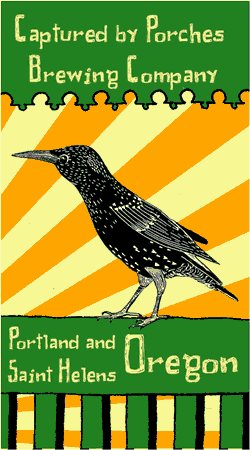- Homebrew Kits Homebrew Kits
-
BEER MAKING
BEER MAKING
-
- All Grain Equipment
- Grain Mills
- Grain Storage Supplies
- BIAB Supplies
- Hot Liquor Tanks
- Mash & Lauter Tuns
- RIMS Supplies
- Strainers & Filters
- Sparge Arms
- Float Switches
- Transfer Pumps
- False Bottoms & Screens
- Hose & Tubing
- Boiling Supplies
- Boil Coils & Heat Sticks
- Burners & Accessories
- Brew Pots & Kettles
- Paddles & Spoons
- Screens & Infusers
- Wort Chillers
- Brewing Systems & Stands
- Automated Systems
- Control Panels
- Electric Systems
- Propane Systems
- DIY Homebrew Stands
- Fermentation Equipment
- Aeration Tools
- Airlocks
- Bungs & Stoppers
- Carboys & Buckets
- Carboy Accessories
- Conical Fermenters
- Conical Accessories
- Siphoning Equipment
- Stir Plates
- Yeast Starter Supplies
- Temperature Controllers
- Bottling Supplies
- Bottle Caps & Corks
- Bottle Cappers & Corkers
- Bottle Fillers
- Beer Filters
- Bottles
- Bottle Accessories
- Bottle Dry Racks
- Bottle Washers
- Bottling Buckets
- Bottling Kits
- Growlers
- Tubing & Hoses
-
-
WINE MAKING
WINE MAKING
-
- Wine Recipe Kits
- Winexpert Wine Kits
- Winexpert Eclipse Wine Kits
- Vintner's Reserve Wine Kits
- Selection Wine Kits
- Island Mist Wine Kits
- World Vineyard Wine Kits
- Grand Cru Wine Kits
- Cru Select Wine Kits
- Cellar Classic Wine Kits
- Orchard Breezin Wine Kits
- Small Batch Wine Recipe Kits
- Wine Equipment Kits
- Small Batch
- Large Batch
- Wine Making Systems
- Wine Making Equipment
- Wine Bungs & Airlocks
- Wine Temperature Controllers
- Wine Pumps
- Wine Siphoning
- Wine Tubing & Hose
- Wine Making Accessories
- Wine Hardware
- Fittings & Parts
- Quick Disconnects
- Tube Clamps
- Valves
- Food Grade Lubricant
- Inert Gas & Wine Kegs
- Cleaning & Sanitizing
- Wine Cleansers
- Wine Sanitizers
- Wine Cleaning Equipment
-
-
INGREDIENTS
INGREDIENTS
-
- Beer Recipe Kits
- Extract Beer Kits
- All-Grain Beer Kits
- Mini & Partial Mash Recipe Kits
- Small Batch Recipe Kits
- Hops
- Pellet Hops
- Whole Leaf Hops
- Hop Bags & Tools
- Hop Rhizomes
- Hop Growing Supplies
- Beer Flavoring
- Sugars & Syrups
- Brewing Honey
- Herbs & Spices
- Fruit Puree & Flavorings
- Oak Products
- Malt Extract
- Dry Malt Extract (DME)
- Liquid Malt Extract (LME)
- Brewing Grains
- Base Malts
- Caramel Malts
- Specialty Grains
- Flaked & Torrified
- Unmalted Grains
- Rice Hulls
-
- KEGGING KEGGING
- MORE MORE
- LEARN TO BREW LEARN




 Their Wood Pecker brand represents their family struggles and accomplishments while building the brewery and how they came back from the brink.
Both Peckers and Dylan Goldsmith, Brewmaster and Suzanne Goldsmith have beaten the odds.
Their Wood Pecker brand represents their family struggles and accomplishments while building the brewery and how they came back from the brink.
Both Peckers and Dylan Goldsmith, Brewmaster and Suzanne Goldsmith have beaten the odds.
